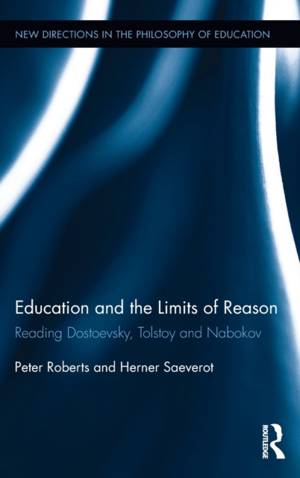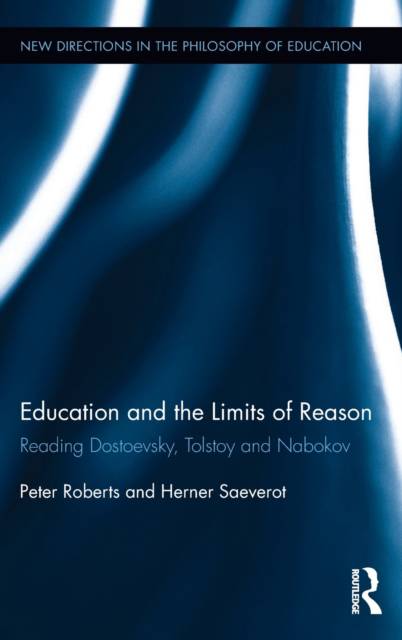
- Afhalen na 1 uur in een winkel met voorraad
- In januari gratis thuislevering in België
- Ruim aanbod met 7 miljoen producten
- Afhalen na 1 uur in een winkel met voorraad
- In januari gratis thuislevering in België
- Ruim aanbod met 7 miljoen producten
Education and the Limits of Reason
Reading Dostoevsky, Tolstoy and Nabokov
Peter Roberts, Herner SaeverotOmschrijving
In recent decades, a growing body of educational scholarship has called into question deeply embedded assumptions about the nature, value and consequences of reason. Education and the Limits of Reason extends this critical conversation, arguing that in seeking to investigate the meaning and significance of reason in human lives, sources other than non-fiction educational or philosophical texts can be helpful.
Drawing on the work of Dostoevsky, Tolstoy and Nabokov, the authors demonstrate that literature can allow us to see how reason is understood and expressed, contested and compromised - by distinctive individuals, under particular circumstances, in complex and varied relations with others. Novels, plays and short stories can take us into the workings of a rational or irrational mind and show how the inner world of cognitive activity is shaped by external events. Perhaps most importantly, literature can prompt us to ask searching questions of ourselves; it can unsettle and disturb, and in so doing can make an important contribution to our educational formation.
An original and thought provoking work, Education and the Limits of Reason offers a fresh perspective on classic texts by Dostoevsky, Tolstoy and Nabokov, and encourages readers to reconsider conventional views of teaching and learning. This book will appeal to a wide range of academics, researchers and postgraduate students in the fields of education, literature and philosophy.
Specificaties
Betrokkenen
- Auteur(s):
- Uitgeverij:
Inhoud
- Aantal bladzijden:
- 144
- Taal:
- Engels
- Reeks:
Eigenschappen
- Productcode (EAN):
- 9780415834148
- Verschijningsdatum:
- 1/10/2017
- Uitvoering:
- Hardcover
- Formaat:
- Genaaid
- Afmetingen:
- 155 mm x 236 mm
- Gewicht:
- 635 g

Alleen bij Standaard Boekhandel
Beoordelingen
We publiceren alleen reviews die voldoen aan de voorwaarden voor reviews. Bekijk onze voorwaarden voor reviews.









